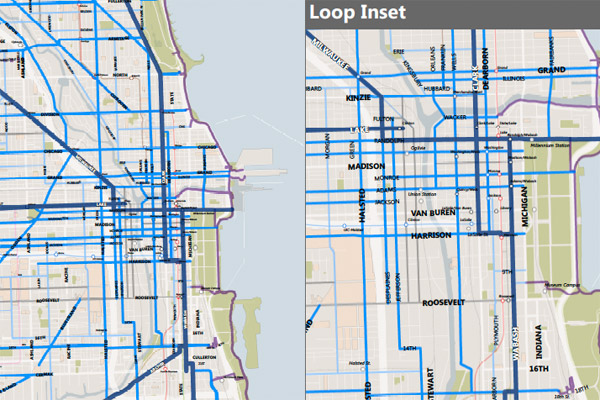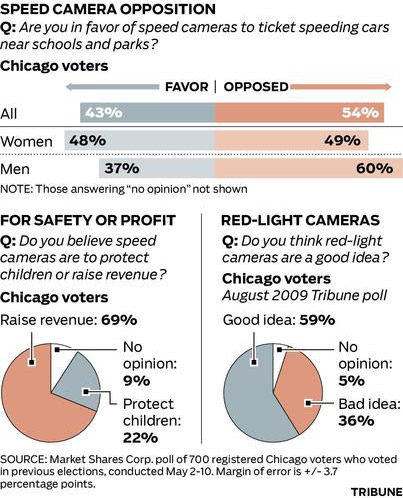
* Over at Grid Chicago, John Greenfield takes a look at the city's plan for making the city more bike-friendly over the next eight years; since it's a draft (PDF), there's time to give input. Notably, it includes 60 miles of "bicycle superhighways," a El-mirroring structure that extends as far south as Blue Island, as far west as Narragansett (just east of Oak Park Boulevard), and as far north as Howard. In addition would be 260 miles of "crosstown bike routes," protected bike lanes covering many of the city's major thoroughfares. Another 360 miles of "neighborhood bike routes" would require varying amounts of new infrastructure.
* A new Trib poll finds opposition to the city's speed cameras. While that may not be surprising in and of itself, the breakdowns are curious—the gender differential, and the change over time. Notably, "no opinion" really doesn't make up that much of the response.

As to why dudes are much more opposed to speed cameras than ladies, I can only assume that it's because men get more tickets than women—well out of proportion to population—and are thus more sensitive to it:
Traffic enforcement in the United States imposes a disparate impact on male drivers. In 2005, 63.4% of all traffic tickets in the U.S. were issued to males. Furthermore, the gender disparity in tickets is in excess of the male share of the driving population. In 2005, 10.8 percent of all male drivers but only 6.8 percent of female drivers were stopped by police, and after being stopped males were more likely to be ticketed.
Why do the vast majority of those polled believe they're intended to raise revenue instead of protect children, and why did opinion turn from "good idea" to opposed? I'd hope that it has less to do with mere cynicism than the idea that there's not particularly strong evidence that speed cameras protect pedestrians from fatal collisions specifically, which is how the program was sold to residents. There is evidence that they reduce speeding and car collisions, but that isn't how the case was made. The city fumbled the data, and missed the chance to make a stronger case.
* UIC is getting almost a million dollars to do a three-year study of how cities respond to recessions. I'm really looking forward to that.
Graphics: CDOT, Tribune


